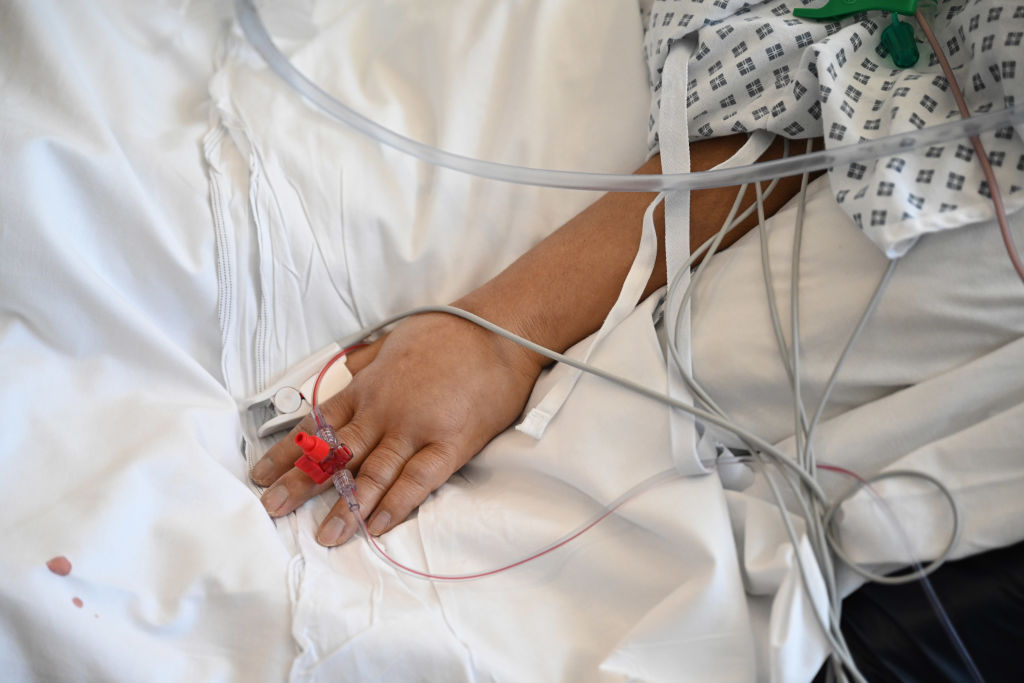There’s nothing like a pandemic to remind you of your mortality. I rather suspect that many of us are having more conversations about death than before. Perhaps we’re finally talking to family and friends about what dying well means to us.
This is no bad thing. Knowing about a loved one’s preferences could well spare them from overzealous or largely ineffective interventions at the end of life, which might otherwise rob them of a peaceful death. Some might even consider making a legally-binding advance decision to refuse specific treatments, to be used only when they lose decision-making capacity.
The difficulty is in broaching the subject. For some, the words ‘Do Not Resuscitate’ (DNR) are practically the equivalent of a death sentence. Patients frequently overestimate the success rate of CPR and underestimate its burdens. The glamourised heroics of Holby City are a far cry from the aggressive and often grisly realities of failure, broken ribs and brain damage.
Individual assessment is therefore indispensable for figuring out what treatments are less likely to be helpful, which one might consider refusing in advance. But even so, there is another concern to be addressed: are decisions about withholding treatment sometimes a cover for discriminatory attitudes against old age or disability?
The current crisis may have worsened such fears. In early April, a Welsh GP surgery drew criticism for sending a letter to patients with serious illnesses, asking them to complete a DNR form so that ‘scarce ambulance resource can be targeted to the young and fit who have a greater chance’. A week later, it emerged that that another GP practice had told a support group that autistic adults under its care should have DNRs in place.
Such efforts are clinically inappropriate and ethically questionable. The inevitable suggestion made to the patient is that thanks to their condition their life has been judged less worthwhile – or not worth the burden on the state’s resources.
If that’s not bad enough, alarm bells should be ringing that an organisation called ‘Compassion in Dying’ has been offering advice on how to make advance decisions. (The clue’s in the name: it was founded by its more well-known sister organisation, Dignity in Dying, which campaigns for the legalisation of assisted suicide.)
Back in 2014, concerns were raised by disability campaigners when Compassion in Dying received £1 million in lottery funding for an outreach project on advance decisions. Compassion in Dying later reported that its approach would ‘save money in the long-term’ by ensuring people did not get unwanted treatment.
More recently, the organisation has rolled out a special coronavirus page on refusing treatment, with a format almost identical to the gov.uk information pages on driving licences or tax returns. This seems highly unusual for a registered charity, and potentially misleading.
The danger with Compassion in Dying is that it appears to promote an all-or-nothing approach. Follow the coronavirus page and it leads you to its bespoke advance decision pack, where the template form directs a person to consider refusing all life-sustaining treatment in the event of whichever condition one chooses to include. First on the list is ‘any type of dementia’.
What does this mean in practice? Suppose someone with dementia contracts pneumonia and because of the illness becomes more confused and unable to make decisions. If such a blanket refusal has been signed, doctors would be highly unlikely to administer even a simple course of antibiotics.
The advance decision pack does little to encourage a person to consider the likely benefits and burdens of different treatments. Instead, it highlights the possibility of refusing life-sustaining treatment in ‘situations that you would find intolerable’, such as being ‘unable to attend to my personal hygiene’, or being ‘persistently anxious or agitated’.
The message is clear: people are asked to judge whether life with a certain condition or disability is worth living. Coronavirus, Parkinson’s, or stroke – the question is the same, regardless of one’s chances of survival. This cannot be less egregious than the actions of those two unfortunate GP surgeries. It is almost assisted suicide by the backdoor.
Paralympic gold medallist Baroness Grey-Thompson once wrote that legalising assisted suicide would ‘exacerbate the assumption that because there may [be] some things I cannot do, everything must be negative’. Such an attitude can easily go on to influence vulnerable people.
Promoting blanket refusals of treatment has the same, pernicious effect of promoting a blanket dismissal of life with disability. And no one should be using the coronavirus crisis to encourage such thinking.
Michael Wee is education and research officer at the Anscombe Bioethics Centre in Oxford






Comments